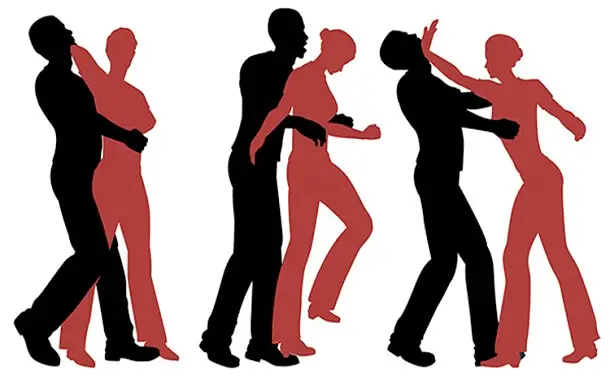How Much Do Self-Defense Classes Cost?
Last Updated on February 15, 2024
Written by CPA Alec Pow | Content Reviewed by ![]() CFA Alexander Popinker
CFA Alexander Popinker
Self-defense training can be a worthwhile investment in your personal safety and peace of mind. But how much should you expect to pay for quality instruction? This guide examines the factors that influence the cost of self-defense classes and provides average pricing ranges to help you budget for the training option that fits your needs.
Learning self-defense techniques and strategies from certified experts is the most effective approach for gaining real-world self-protection skills. Whether you’re hoping to fend off muggers, escape a physical attack, or just feel more confident walking alone, self-defense classes can help you achieve your safety goals.
How Much Do Self-Defense Classes Cost?
Introductory group self-defense classes tend to start around $100, with more advanced ongoing training ranging from $150-$400 on average per month. Private lessons generally cost $50-$100+ per hour.
Pricing for self-defense instruction can vary greatly depending on the type of class, experience level, location, and other factors. Some general ranges are:
- Community Workshops: Often $50 or less for a 1–3-hour basic seminar.
- Group Classes:
- Intro courses: $100-$200 for 1–4-week series of 1-2 classes per week.
- Ongoing classes: $150-$300 per month for 1-2 classes per week.
- Private Training:
- Individual lessons: $50-$100 per hour for 1-on-1 instruction.
- Small group pricing: $30-$75 per person per session for 2-4 people.
- Martial Arts Schools:
- Monthly membership: $100-$300 on average for 2-4 classes per week plus open gym access.
- Unlimited classes package: $200-$400+ per month at premier studios in major cities.
- Testing fees: $50-$100 per belt certification exam.
- Women’s Self-Defense Course:
- Short course: $30-$100 for 1-3 class series.
- Ongoing classes: $100-$200 per month for 1-2 classes per week.
- Certification Programs:
- Basic certification: $300-$600 for comprehensive self-defense skills training.
- Instructor certification: $800-$2000+ for extensive programs certifying you to teach.
- Seminars/Workshops:
- Half day seminar: $50-$100
- Full day intensive: $100-$300
Lessons.com reports that self-defense classes cost $75 to $150 per month for 3 group classes per week. Private self-defense training classes cost $40 to $100 per hour.
Hassett’s Jiu-Jitsu states that the average cost of a self-defense class is $45 per session, with a range of $30 to $80 per class.
Thumbtack reports that the national average cost of self-defense instructors is $30 to $40 an hour, with the cost depending on whether you want private or group lessons, what age group the lessons are for, how much time and how many sessions are involved, your own experience level, and the type and complexity of instruction.
Model Mugging charges about $20 to $25 per student for each hour of training that covers labor, equipment, space rental, and many administration fees.
Types of Self-Defense Classes Available
There are many types of self-defense instruction focused on different methodologies and scenarios. Common options include:
- Martial Arts: Traditional martial arts training like Karate, Judo, and Taekwondo requires a major time commitment, with costs ranging from $100-$300 per month for 2-3 classes per week. Gear like gis and belts can cost $50-150. Testing for rank certification averages $50-100 per test.
- Krav Maga: This intense training often costs $150-$300 monthly for unlimited classes. Workshops and seminars run $50-$200 each. Protective gear like boxing gloves and mouthguards will be extra.
- Women’s Self-Defense: Specialized courses for women tend to run under $100 for a 1-3 class series. Gear is rarely required. Seminars and workshops can cost $30-$75 each.
- General Self-Protection: A basic intro class may be only $50-$100 for a 1-3 session course. Gear is optional, though padded gloves may be recommended for $20-50.
Factors Influencing the Cost of Self-Defense Training
Several variables impact the cost of self-defense instruction, including:
- Class Type: Private lessons priced per hour or session are $50-$150+. Small group classes for 2-4 people split the cost, around $30-$75 per person.
- Instructor Expertise: Those with police, military, or professional martial arts experience may charge $70 per hour or more. Licensed instructors can command $100+ per session.
- Location: Studios in major cities like NYC, LA, and Chicago may charge 25-50%+ more than suburban areas.
- Course Length: A single 2–3-hour intro workshop can be $50-$100 compared to over $300 for a month of unlimited classes.
The Right Self-Defense Training for Your Budget
 Consider both your financial situation and training goals as you choose a self-defense class. A few strategies:
Consider both your financial situation and training goals as you choose a self-defense class. A few strategies:
- Take an affordable intro workshop to test it out before committing to ongoing training.
- Look for discounts on first-time student specials or group packages at martial arts schools.
- Consider lower-priced fitness kickboxing or MMA classes that include some self-defense.
- For intensive training, search for instructors offering periodic deals on private lessons.
- If cost is a major issue, check municipal rec centers and local gyms for basic self-defense.
Additional Costs to Factor In
Aside from base course fees, you may need to budget for:
- Martial arts uniform: $25-$100 or more for required gi or gear.
- Training equipment: Gloves, pads, armor, baton, etc. if needed for your style.
- Certification testing fees: $50 and up per test leading to a degree or belt rank.
- Seminars: Special workshops or conferences cost extra but offer valuable supplemental training.
- Ongoing lessons: To retain skills, continued 1-2x monthly training is ideal after initial series.
Final Words
Self-defense instruction requires an investment. But considering the value of feeling safe and secure, it’s worth spending to get quality training tailored to your needs and budget. With the right class, you gain skills that could save your life while building confidence to better handle threats.
You might also like our articles about the cost of boxing lessons, kickboxing classes, or Taekwondo classes.
When evaluating self-defense training options:
- Focus first on proven instructors and techniques, not just low prices.
- Consider class style and features matching your learning goals.
- Factor in costs beyond base fees if signing up for longer-term instruction.
Learning to protect yourself is a rewarding endeavor. With smart planning, self-defense classes can be an accessible path to gaining invaluable skills and peace of mind.
Frequently Asked Questions
What should I do to learn self-defense?
The most effective way to learn self-defense is to take classes from certified instructors. Look for courses teaching proven real-world techniques tailored to your needs, whether general self-protection skills or a martial art like Krav Maga.
Practice the moves and scenarios regularly after the course to retain skills. Staying aware of your surroundings and trusting your instincts are also key self-defense strategies.
Should students be able to defend themselves?
Yes, students of all ages have the right to learn self-defense. Age-appropriate self-defense classes can empower students to protect themselves against bullies, assaults, and other threats.
Learning verbal de-escalation along with physical self-defense skills can give students confidence and preparation to handle violence or abuse without becoming the aggressors. Schools are encouraged to offer self-defense programs.
When can we use self-defense?
Self-defense techniques can legally be used when you reasonably believe force is necessary to protect yourself or others from imminent unlawful harm or death. The force used must match the level of perceived threat.
Self-defense claims are evaluated based on what a reasonable person would do in the same situation. Retaliating or using excessive force when not facing immediate danger nullifies self-defense rights.


Leave a Reply
Want to join the discussion?Feel free to contribute!